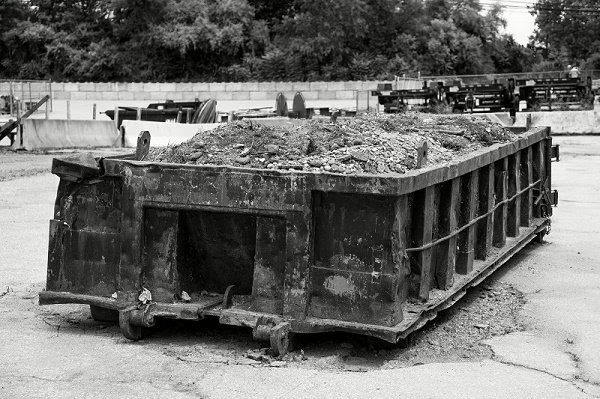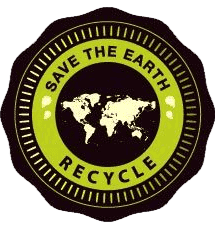Commercial dumpster renting can be an excellent way to get a yard dumpster for quickly cleaning up trash. However, renting a dumpster for commercial reasons also means that you have to go through some extra hops and think carefully about what you buy, especially if you are one of many small businesses that might need a consistent dumpster service, such as grocery stores.
Finding Dumpsters for Rent
Commercial dumpster rental always begins with tracking down the dumpsters themselves. You can rent a dumpster from a range of small businesses in your local area, so finding a dumpster to rent with a simple internet search isn’t all that difficult. For example, looking up “commercial dumpsters Washington DC” or “commercial dumpster rental Washington DC” will usually give you what you are looking for.
Next, consider what you need. Dumpster sizes can vary: common commercial dumpster sizes include 40-yard dumpsters, 30-yard dumpsters, and 20-yard dumpsters, although some businesses will also offer a 10-yard dumpster or 12-yard dumpster for small projects. Either way, figuring out the best dumpster dimensions and weight limit for what you are working with can be important, especially since commercial dumpsters.
Once you have chosen a trash dumpster, you need to arrange for the delivery. Remember that rental of dumpsters at a commercial level often means that you will keep getting a new commercial dumpster every time your current trash dumpster is full. If you need one for a one-time project, commercial dumpster rental is still useful, but you should specify that you don’t need a long-term dumpster service.
Choosing a Dumpster
Commercial dumpsters come in all shapes and sizes, each with a different weight limit or exact set of dimensions that can change what they are best at. For example, roll-off dumpster rentals include wheels that can easily move the dumpster around, but not every company will need this. In other cases, larger dumpster sizes such as 40-yard dumpsters are the main thing a business needs to manage their trash and debris.
Dumpster size is a massive part of this decision. A disposal dumpsters in an alleyway behind restaurants might need to be reasonably small since the trash pickup won’t work if the dumpster can’t physically be reached by the pickup trucks. Unlike construction dumpsters, commercial dumpsters are more likely to be placed in condensed or busy areas, so placement options can be limited.
Once you pick a spot for the commercial dumpster delivery, mark it out with something, whether that is cones or paint. After the commercial dumpster has been delivered, you can start using it.

Using the Commercial Dumpster
A commercial dumpster is a business tool first and foremost. The point of a commercial dumpster service is to let a company quickly deal with trash and garbage by offering a large container that gets picked up regularly as part of the waste disposal service. A restaurant in Washington DC, for example, might end up with far more trash than they could manage otherwise. Commercial dumpster rental offers something larger without the need to manage the disposal part of the service separately.
There isn’t any ‘trick’ to using commercial dumpsters well, other than simply using them. You might have to follow certain rules over what can and can not be placed into a dumpster, especially corrosive chemicals or hazardous materials. However, regardless of the dumpster sizes involved, using them is essentially the same routine as any other waste disposal container.
At regular intervals, the dumpster rental company will take your container and go to dispose of the waste for you, then return it so that you can keep using it. This is where the “service” part of the arrangement comes in – you get consistent and regular waste clearing done without having to dedicate any employees or equipment to it.
What to Look For
Whether you are looking for a good budget dumpster, a great option for your up-and-coming business, or something to support employees during booms in the amount of business you get, there are certain things relating to the waste containers that can be worth looking into before you commit to any services. Understanding what is possible comes in useful when you are trying to work out the general sizes, costs, and plans for having a dumpster added to your business premises.
Dumpster Sizes
The size of a dumpster directly affects how much it can hold, but also how large it is. In condensed streets like alleyways near Washington DC, this can be a problem, since you might not have room for a larger choice. In open areas, though, a big dumpster can really shine. Still, you should match it to the amount of waste you produce: a dumpster that is too small becomes a hassle, whereas a dumpster that is too big causes you to over-spend for no extra gain.
Location
The closer you are to a waste disposal service and its headquarters, the faster you can get the new dumpster in place, and the less time it takes for the dumpster to be emptied later on. If you live on the outskirts of Washington DC and the rental company lives on the other side of Washington DC entirely, then it will take them a long time to get to and from their main base of operations. Accessibility is also covered under here: after all, if your office building doesn’t have room for a big dumpster, you will need to drop down to something smaller, or perhaps even get multiple at once.
Price
If a company’s site has anything like a “call us” button or an accessible customer service email address, you might be able to get a dumpster service quote for your property. This can make it far easier to compare the prices you have been given from various companies and might let you see a more accurate summary of how much each dumpster size can cost you. Sometimes, the difference between a 30-yard and 40-yard container can be as high as $100 depending on where you live relative to the business that you are interested in.
